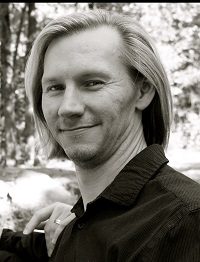Learning from the Past and De-Weaponizing Disease
Miles Tompkins, MLT(ASCP)CM, ASCLS-Oklahoma President, ASCLS Diversity Advocacy Council Chair

Despite being almost 25 years since I came out as a gay man, those words are still emblazoned in my memory as if they were spoken to me yesterday. Even in the pre-internet and social media world, divisions were drawn based on religious, political, geographic, and socioeconomic associations. Headlines with the words “gay plague” or “junkie pneumonia” were commonplace in the period from when doctors first saw cases of GRID (Gay-related immune deficiency), a term never condoned by the scientific community, to what we now know and understand to be HIV/AIDS.
Now, with the advent and adolescence of our understanding of SARS-CoV-2, and the disease it is more commonly referred to—COVID-19—it is vitally important that we as laboratory scientists take a stand against those who would weaponize the tragedy and ignorance of others for their own gain. While it is practically impossible to make a comprehensive guide on how to combat the malicious or even sometimes unintended language used, as someone who has been on the receiving end, here are my personal recommendations on how we can re-educate the public and promote the diversity in which ASCLS, our field, and a successful society thrives.
- See something, YOU say something. Just like with any human rights struggle, progress is never made solely by those affected by change. It takes allies of all kinds. Just because you are not of Asian descent, it does not exclude you from being part of the solution when you see the words “China virus” or someone being treated differently because of their appearance. Ignorance cannot be fought by ignoring.
- Have a conversation. Don’t allow yourself to fight with memes or 280 characters but have a genuine personal connection. Peoples’ minds are changed by discussion, not by someone shouting through a megaphone on the street.
- Educate yourself. One of the things I am most proud of about ASCLS is our welcoming of all educational levels and the desire to raise the bar on our collective knowledge. It is with that in mind that we should push ourselves and each other to learn as much as possible, not only the specifics of COVID-19, but the proper language we should use with each other.
- Have empathy. Unlearning a behavior or breaking a habit can be one of the most jarring moments some people have. While it certainly does not compare to the destructive consequences of vitriol and hate, it still requires empathy and understanding to unlearn prejudices.
- See your own flaws and be part of the solution. One of the most difficult parts of fighting prejudicial behaviors is recognizing them in ourselves. Words and actions that to you may seem benign, to someone else can be physically and emotionally detrimental. Take time to contemplate your cognitive behavior and take appropriate action to isolate and eliminate anything that is fallacious.
The history of how humankind has reacted to previous pandemics is wrought with unfounded prejudice and predatory moments. We, as a scientific community, are fortunate to have the methodical and critical thinking skills already in our wheelhouse of knowledge. It is through our behavior now that the lens of time will show how we communicated during the COVID-19 pandemic, and how it imprinted on the memories of those most affected. I challenge all of us, myself included, to project and communicate in a way that will make people, even 25 years from now, proud of who we were and are, in some of the most difficult of circumstances.
Miles Tompkins is a Medical Technologist for DLO at Integris Baptist Medical Center in Oklahoma City, Oklahoma.
